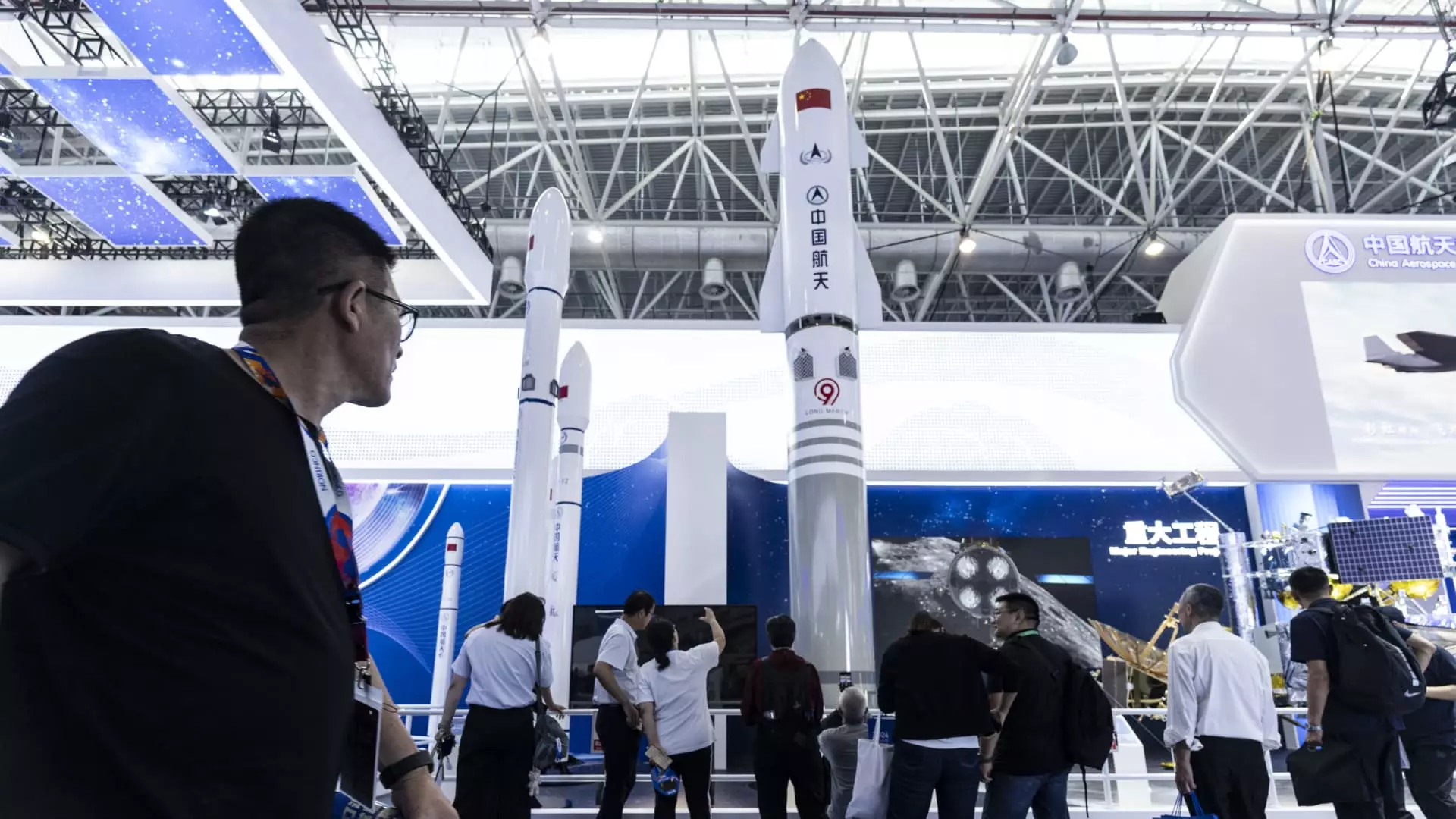The modern race for satellite internet supremacy is fiercely competitive, with Elon Musk’s SpaceX leading the charge through its Starlink initiative. With an impressive fleet of around 7,000 satellites already in orbit and a burgeoning customer base of approximately 5 million users spanning over 100 nations, SpaceX has set a high bar for satellite communication. The primary goal of Starlink is to provide high-speed internet to users in underserved and remote locations, indicating a substantial market potential for satellite-based services. SpaceX is not resting on its laurels, as it has ambitious plans to expand its network to as many as 42,000 satellites.
In response, China has outlined its own ambitious strategy to deploy a vast constellation of satellites, aiming for around 38,000 units across three major projects—Qianfan, Guo Wang, and Honghu-3. This effort reflects a broader trend in which not only SpaceX but also entities such as Eutelsat OneWeb in Europe and Amazon’s Project Kuiper are vying for leadership in the low Earth orbit (LEO) satellite market. As of now, OneWeb has launched over 630 satellites, while Project Kuiper is still in its early stages, having deployed just two prototype satellites.
Given the competitive landscape, one might question why China would invest heavily in satellite megaconstellations. According to Steve Feldstein from the Carnegie Endowment for International Peace, the answer lies not just in providing universal internet access but also in concerns over information control. The ability of Starlink to offer uncensored internet access poses a significant threat to China’s censorship regime. The idea that Chinese citizens could access a more open internet through a competitor’s service is alarming to Beijing.
Moreover, Blaine Curcio from Orbital Gateway Consulting suggests that China’s approach could be appealing in specific markets. While China may be perceived as late to the game, it offers a distinct advantage: the promise of stringent internet censorship to align with local governance. This could resonate well in certain countries where information control is prioritized.
Experts argue that while Chinese satellite services may not become mainstream in Western nations such as the U.S. or countries within Western Europe, they could find fertile ground in various regions. For instance, nations like Russia, Afghanistan, and parts of Africa currently lack comprehensive coverage from Starlink. Juliana Suess from the German Institute for International and Security Affairs recognizes that, given Huawei’s significant investments in African 4G infrastructure, a satellite service could deepen China’s influence on the continent.
The geopolitical implications of this race for satellite internet capabilities cannot be understated. Satellite technology is increasingly deemed a national security necessity, especially in scenarios where terrestrial internet infrastructure might be compromised, as seen in conflict zones. Inhlone with this perspective, Feldstein points out that technologies like Starlink have fundamentally altered the battlefield, particularly in regions like Ukraine, where new forms of warfare rely heavily on connected platforms.
As this dynamic landscape evolves, the future of satellite internet governance and accessibility remains a multifaceted challenge. Countries are seeking to balance the advantages of advanced communication technologies with the imperatives of national security and information control. While SpaceX has taken the lead in deploying effective solutions, China’s strategic moves indicate that the race is far from over.
The ambitions of various players—including SpaceX, European firms, and the Chinese government—signal that satellite internet will continue to reshape not only global communications but also the socio-political landscape. Each project will likely foster new alliances and tensions, reflecting the profound impact of technology on society.
As China ramps up its efforts to develop its satellite internet capabilities, the geopolitical stakes have never been higher. With a rush to deploy advanced technology in a contested environment, the winners and losers of this modern satellite race will set the tone for the future of internet access and control worldwide. The outcome may well determine not just who gets connected, but who gets to control the flow of information in an increasingly interconnected world.


Leave a Reply